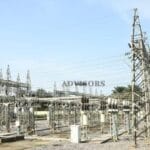Oredola Adeola
Nigeria’s oil + condensate reserve has grown to 37.50 billion barrels, while the total natural gas (associated and non-associated) reserve has surged to 209.26 Trillion Cubic Feet (TCF) as of January 2024, the Nigerian Upstream Petroleum Regulatory Commission (NUPRC) has revealed.
Engr. Gbenga Komolafe, Chief Executive, NUPRC, made this known during an event organised by the Commission with the theme: “National Annual Petroleum Reserves Position as of 1st January 2024 and Template for Domestic Crude Oil Supply Obligation Guidelines”, in Abuja, in line with the Commission’s statutory declaration.
A breakdown of the NUPRC’s data showed that crude oil and condensate reserves stand at 31.56 billion barrels and 5.94 billion barrels respectively, totaling 37.50 billion barrels in January 2024, after it increased from 37.046 billion barrels recorded in January 2023.
Advisors Reports’ analysis showed that the oil including condensate reserves grew by 1.087 billion, representing 1.46% in January 2024.
Checks also showed that the associated and non-associated natural gas reserves stand at 102.59 trillion cubic feet (TCF) and 106.67 TCF respectively, totaling 209.26 TCF in gas reserves in the period under review.
Advisors Reports’ analysis showed that the country’s natural gas reserve increased from 208.83 TCF as of January 31, 2023, to 209.26 TCF as of January 31, 2024, represents a slight increase of approximately 0.21%.
According to the Commission’s Chief Executive (CCE), Nigeria’s oil reserves life index is 68.01 years, and the natural gas reserve life index is 97.99 years.
The NUPRC’s boss while commenting on President Bola Tinubu’s renewed hope initiatives, emphasised that the Commission is working towards improving the oil and gas sector’s performance, enhancing the growth of the country’s oil and gas reserves, and ensuring stable production.
He said, “The significance of the event was to showcase Nigeria’s capacity in terms of the abundance of its proven hydrocarbon resources.
“Most of the latest national oil and gas reserves data were obtained from the brown and marginal fields, some of which have commenced production especially those owned by the last marginal fields awardees.
Komolafe also noted that some of the recent executive orders by President Tinubu have shown the administration’s commitment to removing obstacles to the country’s oil and gas investments, thereby improving the investment climate, positioning Nigeria as the preferred investment destination for the oil and gas sector in Africa and diversifying the economy for the benefit of all Nigerians.
He further emphasised that the NUPRC is committed to further improving the country’s oil and gas reserves, adding that the Commission will advance the successful completion of all strategic initiatives that would enhance the sector’s productivity including the Nigerian Gas Flare Commercialisation Plan (NGFCP).
The NUPRC’s boss said, “The NGFCP would drive the attainment of Nigeria’s pledge to end routine gas flaring within this decade and contribute to the reduction of global emissions, and the Domestic Crude Oil Supply Obligation (DCSO), to meet demands of local refineries.
Engr. Komolafe in a landmark move, at the event, unveiled a template guiding the activities for Domestic Crude Oil Supply Obligation (DCSO) in compliance with the provisions of Section 109(2) of the Petroleum Industry Act (PIA), 2021.
According to him, the new template was developed in conjunction with NNPC Upstream Investment Management Services (NUIMS), representatives of Crude Oil/Condensate Producers, Crude Oil Refinery Owners Association of Nigeria (CORAN) and Dangote Petroleum Refinery.
Advisors Reports further gathered that this initiative will address the frequent feedstock supply issues between crude oil producers and owners of refineries, in compliance with the DCSO regulation.
Komolafe noted that the DCSO template has the buy-in of all stakeholders, being part of efforts to ensure frequent and consistent supply of crude oil to domestic refineries.
The CCE affirmed that the second half of the year will record increased synergy between local refineries and oil-producing companies, setting the stage for a more robust and self-reliant petroleum landscape in Nigeria.
NUPRC therefore noted that all allocated DCSO volumes shall be fully discharged into the refinery it is meant for and fully utilised for domestic refining.
Komlafe therefore said, “The payment shall be in either United States Dollar or Naira or both. Where the payment is in both currencies, the payment split shall be as agreed in the Sales and Purchase Agreement (SPA) between the producer and the refiner.
“Where a lessee enters a long-term supply contract with the refiner in fulfillment of his domestic crude oil supply obligation, the obligation to sell crude to the refiner by the lessee is reliant upon the refinery being in operation.
“All DCSO allocated cargoes must be discharged into the refinery facility they are programmed for and shall not be diverted or swapped.
“Utilisation of any DCSO allocation by any refiner for any purpose other than domestic processing, without a written approval by the commission shall attract suspension from DCSO allocation for a period determined by the commission in addition to any other administrative penalty that may be imposed by the commission” Komolafe stated.
The CCE, therefore, emphasised that based on the new regulations, in the event of a default in payment by the refiner, NUPRC shall not allocate DCSO to the defaulter for a period to be determined by it, in addition to the penalty contained in the sales agreement between the refiner and the lessee.
According to Komolafe, “The following penalties shall apply to any refiner that fails to offtake the allocated DCSO (except in the event of force majeure as defined in the SPA), in addition to any other agreed penalty in the SPA between the Lessee and the refiner.
“For pipeline, barging, or trucking deliveries, take or pay conditions shall apply. For marine deliveries, the lessee shall sell the parcel of the crude oil as a distressed cargo and the defaulting refiner shall be liable for liquidated damages as provided in the SPA.
“Where the lessee fails to supply the allocated DCSO resulting in shortages for the refinery (except in the event of force majeure as defined in the SPA), the defaulting lessee will be liable to an administrative penalty to be determined and imposed by the commission,” the NUPRC stated.




